News written by Dave Horvath (June, 2006)
Written by Dave Horvath @ 30 Jun 2006 6:05
 Recent news has shown some possible insight as to the price point of Sony's newest gaming console, the PS3. At the gaming industry trade show known as E3, Sony shocked the world when it announced it's new PS3 will go on sale for an astounding $599. Could it be that this inflated price may have been a foreshadow of their financial outlook?
Recent news has shown some possible insight as to the price point of Sony's newest gaming console, the PS3. At the gaming industry trade show known as E3, Sony shocked the world when it announced it's new PS3 will go on sale for an astounding $599. Could it be that this inflated price may have been a foreshadow of their financial outlook?
The Tokyo Regional Taxation Bureau notified Sony and Sony Computer Entertainment Inc that a reassessment of reported profits for the financial year ending March 2000 through to March 2005 resulted in a 74.4 billion Yen difference in their taxes. The tax bureau then ordered Sony to pay an additional 27.9 billion yen ($243 million) in taxes related to transactions between its game unit and its U.S. subsidiary.
"Sony and SCEI believe that their allocation of income for the periods in question was appropriate and that they have paid the proper amount of taxes in each of the jurisdictions," Sony has said in a statement.
Source:
Reuters
Written by Dave Horvath @ 29 Jun 2006 6:12
 Spanish Congress announced a new legislation that outlaws all P2P file sharing on personal computers owned and operated in the country of Spain. Congress unanimously approved this legislation as a civil offense where users caught downloading anything via P2P for personal or commercial use will be fined the amount lost by the licensee due to the download.
Spanish Congress announced a new legislation that outlaws all P2P file sharing on personal computers owned and operated in the country of Spain. Congress unanimously approved this legislation as a civil offense where users caught downloading anything via P2P for personal or commercial use will be fined the amount lost by the licensee due to the download.
The government has also stated that they will single out the ISPs who facilitate the use of P2P file sharing. They believe they have the technology to block P2P traffic and will fine ISPs who allow this traffic to go through.
Spain has also suggested a tax levy in which most forms of digital media will receive a higher tax. CDs, DVDs, flash drives and even mobile phones will get hit with a tax penalty merely for the ability to load illegal content. They have said that the money collected by these taxes will go towards paying back owners of copyrighted materials. This begs the question, if you tax media prior to copyright material being loaded on it, who determines where the tax goes? Appears to be a situation of putting the cart before the horse, so to speak.
Source:
TMCnet
Written by Dave Horvath @ 28 Jun 2006 8:50
 The homebrew scene has reason to rejoice as PSP Updates has officially found an exploit within the PSP 2.6 firmware that gives them access to the kernel.
The homebrew scene has reason to rejoice as PSP Updates has officially found an exploit within the PSP 2.6 firmware that gives them access to the kernel.
What this means for "normal users" is that once this exploit is fine tuned, homebrew applications will be able to reside safely on 2.5 and 2.6 versions of the PSP. Its said that you will still need a copy of Grand Theft Auto: Liberty City Stories to access the exploit, however it is progress.
The developer that found the exploit urges against anyone but the highly experienced PSP modders look into this exploit until a more stable means of implimentation can be developed.
Source:
PSP Updates
Written by Dave Horvath @ 28 Jun 2006 8:15
 The French arm of media giant Virgin Records, VirginMega France is being sued for illegally obtaining a copy of Madonna's song "Hung Up" and redistributing it for sale on their website.
The French arm of media giant Virgin Records, VirginMega France is being sued for illegally obtaining a copy of Madonna's song "Hung Up" and redistributing it for sale on their website.
The courts found VirginMega in clear violation of an exclusive deal reached by Warner Music France with France Telecom and Orange. With the courts ruling, VirginMega has been ordered to pay fines in excess of 600,000 euros ($754,266; £414,147).
Herve Payan of France's Telecom stated "This is an amazing case of simple piracy by a respected company.
Virgin behaved in a surreal manner by downloading the song, cracking protection measures and then selling it from their own web site." VirginMega however says it broke the terms of the agreement to serve the best interests of it's consumers.
Source:
BBC News
Written by Dave Horvath @ 26 Jun 2006 10:46
 Last week, the leader in portable music devices, Apple denied to the press that it was in any violation of labor laws for their production factories based in China. Hon Hai Precision Industry's Foxconn factory, production partner for Apple's iPod, has now stepped up to the plate and admitted to keeping workers under unfair conditions. It seems the factory turned its back on Chinese law and had workers that were overworked and underpaid.
Last week, the leader in portable music devices, Apple denied to the press that it was in any violation of labor laws for their production factories based in China. Hon Hai Precision Industry's Foxconn factory, production partner for Apple's iPod, has now stepped up to the plate and admitted to keeping workers under unfair conditions. It seems the factory turned its back on Chinese law and had workers that were overworked and underpaid.
In their defense, Foxxconn has stated that even though workers were forced to work some 80 extra hours per month, they were compensated for those hours. The 80 extra hours takes these workers 44 more hours than is allowed by law.
Apple has commented that it will investigate these issues and comment further when they have more information.
Source:
The Inquirer
Written by Dave Horvath @ 23 Jun 2006 6:21
 The self proclaimed arch-nemesis of the Recording Industry Association of America (RIAA), the group collectively known as DefectiveByDesign is looking to bombard the RIAA with anti-DRM techniques to let them know that consumers will not stand for it.
The self proclaimed arch-nemesis of the Recording Industry Association of America (RIAA), the group collectively known as DefectiveByDesign is looking to bombard the RIAA with anti-DRM techniques to let them know that consumers will not stand for it.
The group has already led several marches and protests outside prominent executive offices dressed in yellow biohazard suits clearly making their statements. Their most recent action is to call-to-arms all consumers who oppose the use of DRM in commercially available products by allowing people to sign up and join their fight. Upon entry into the group, new users will receive all the contact information for the top dogs in charge of the RIAA (US), IFPI (Germany), BPI (UK), SNEP (France) and CRIA (Canada). This information enables you to speak out against DRM and let "the man" know exactly how you, the consumer, feels about it.
DefectiveByDesign.org
Written by Dave Horvath @ 22 Jun 2006 4:29
 The original BitTorrent client that had at one point set the Internet world on it's ear has received a facelift. This time it addresses issues ISPs have with the amount of traffic dedicated to the BitTorrent P2P network.
The original BitTorrent client that had at one point set the Internet world on it's ear has received a facelift. This time it addresses issues ISPs have with the amount of traffic dedicated to the BitTorrent P2P network.
A growing concern among ISPs has been that 60% of their network bandwidth is used for the BitTorrent protocol. This has led to an increase in cost for the ISP due to growing network needs. To remedy this, ISPs have been forced to take action in a couple of ways. Early adopters used a bandwidth throttling technique which searched out the BitTorrent protocol and intentionally cut back the amount of available bandwidth issued to users in the BitTorrent community. Although this technique seemed to relenquish some of the burden for ISPs, paying customers were outraged and demanded action.
A more viable solution is the use of traffic caching. What this technique does is caches popular download paths in internal network servers, thereby making BitTorrent traffic route through internal networks, rather than rely on their external network usage. This allows speeds to remain constant and its much cheaper for ISPs to operate within their internal network.
BitTorrent 4.20 impliments the latter, a traffic caching feature called Cache Discovery Protocol. The feature within the client allows ISPs to detect that the client can understand how to route through cached servers and makes both parties happy.
Read more...
Written by Dave Horvath @ 22 Jun 2006 6:50
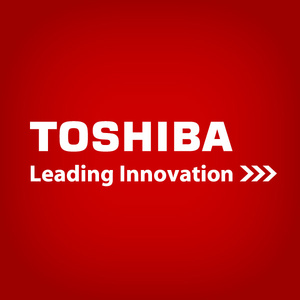 Blazing it's own trail in the war of the next generation standards, Toshiba has announced that it's RD-A1 HD DVD recorder will go on sale in Japan on July 14th.
Blazing it's own trail in the war of the next generation standards, Toshiba has announced that it's RD-A1 HD DVD recorder will go on sale in Japan on July 14th.
Boasting more specs than the average high-def geek can shake a stick at, this recorder seems to have everything one might want out of a digital media recorder. A few of these specs include TV Tuner for high definition and analog signals, Ethernet port for network streaming, HDMI support for 1080p resolution, support for all the latest audio codecs including Dolby Digital Plus, Dolby TrueHD, and DTS-HD. Probably the most appealing feature is the built in 1Tb hard disk drive for saving up to 92 hours of high definition recordings or an astounding 74 days of standard definition.
There is a downside to all things new, bright and shiny. The launch in Japan is set to set people back some ¥398,000 which is right around $3,464 (2,757€ or 1,893£).
Source:
Reuters
Written by Dave Horvath @ 22 Jun 2006 6:10
 The HDMI (High Definition Multimedia Interface) connection standard has been updated with the finalized version of HDMI 1.3. Seven companies have backed this upgrade including Sony's PS3 console.
The HDMI (High Definition Multimedia Interface) connection standard has been updated with the finalized version of HDMI 1.3. Seven companies have backed this upgrade including Sony's PS3 console.
HDMI 1.3 adds a number of enhancements over the last version, for example, it is capable of higher data transfer rates from 4.95Gbps to 10.2Gbps by making the clock speed climb to 340Mhz from the previous 165Mhz. This increase in bandwidth allows capable devices to display 30, 36 and 48-bit color in both RGB and luminance-chrominance (YCbCr) color spectrums. It also supports the emerging color spectrum, xvYCC.
The new version will also add support for automatic synching of audio and video streams on the fly while also handling new audio formats such as Dolby TrueHD and DTS-HD Master Audio.
Source:
The Register
Written by Dave Horvath @ 20 Jun 2006 12:53
 Today's day and age is a glorious time to marvel in our own accomplishments. With the advent of the Internet, we have given birth to technological, political and ethical conflicts that we had never dreamed possible before. As a result of such technology, even a private correspondence between two professionals cannot remain hidden forever.
Today's day and age is a glorious time to marvel in our own accomplishments. With the advent of the Internet, we have given birth to technological, political and ethical conflicts that we had never dreamed possible before. As a result of such technology, even a private correspondence between two professionals cannot remain hidden forever.
As most of you are well aware, the MPAA, Swedish Officials and even the U.S. Embassy all rejoiced as they raided and took down (for 3 days) their self-proclaimed nemesis, The Pirate Bay. Now circulating around the Internet is the actual letter sent from MPAA executive John G. Malcom to Swedish State Secretary, Dan Eliasson prior to the raid of The Pirate Bay.
Link can be found here.
Written by Dave Horvath @ 20 Jun 2006 5:23
 The Motion Picture Association of America (MPAA) has been working closely with developers from the Georgia Institute of Technology to produce a device aimed at blinding people who record movies illegally in theaters.
The Motion Picture Association of America (MPAA) has been working closely with developers from the Georgia Institute of Technology to produce a device aimed at blinding people who record movies illegally in theaters.
While not looking to physically harm any individuals, a team of engineers have developed a prototype device that is able to scan theaters and look for recording devices such as personal camcorders. With this prototype, connected to a computer, they can scan the theater looking for a digital recorder's charge-coupled device (CCD) image sensor. Each CCD inside all digital recorders are retroreflective, meaning they reflect light directly back at the point of origin. Once found, this prototype will flood the target with a blinding white light rendering the recording useless.
This prototype is still early in the developmental phase and the researchers still haven't figured out how to weed out false positives from shiny objects in the room. However, with the MPAA claiming a $1.2 billion loss due to recorded movies in Asia, they hope to have this technology up and running soon.
Source:
BBC
Written by Dave Horvath @ 15 Jun 2006 6:54
 After two solid years of lobbying by anti-piracy groups like RIAA and MPAA, someone in the US Congress has decided to listen. The two groups have asked for US resources to help stop Internet Piracy in foreign lands. After their jovial announcement of "sinking The Pirate Bay", the RIAA and MPAA used their raid as ammunition to coax US law enforcement to aide in their campaign.
After two solid years of lobbying by anti-piracy groups like RIAA and MPAA, someone in the US Congress has decided to listen. The two groups have asked for US resources to help stop Internet Piracy in foreign lands. After their jovial announcement of "sinking The Pirate Bay", the RIAA and MPAA used their raid as ammunition to coax US law enforcement to aide in their campaign.
The organizations claim that the entertainment industry loses as much as $250 billion per year to Internet piracy due to downloads of movies, music and video games. Such hot titles as "The Da Vinci Code" and "Grand Theft Auto" were used as figures showing huge losses in their respectful genre. Revenue from the entertainment business is said to account for 6% of the United States Gross National Product, tipping the scales at $626 billion. The RIAA and MPAA claim that the losses they incur from Internet theft could eventually have a detrimental effect on the US economy.
In the aftermath of The Pirate Bay raid, Swedish politicians have been quoted as saying that the US should keep to matters that involve the US. With recent developments of The Pirate Bay's move to the Netherlands to regroup in an astounding 3 days and their impending lawsuit against Swedish officials, it remains to be seen what kind of effect the US may have on other file sharing entities.
Read more...
Written by Dave Horvath @ 15 Jun 2006 6:07
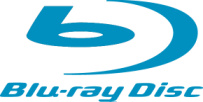 Next generation format pioneer Sony will be launching it's much talked about Blu-Ray format next week. Sony Pictures has stated that it will release select titles on June 20th, even though earlier reports say that Sony itself is delaying their very own Blu-Ray player. The launch, however is to coincide with a Blu-Ray player by supporter, Samsung Electronics Co. Ltd. and the launch of Sony's Blu-Ray compatible VAIO laptop.
Next generation format pioneer Sony will be launching it's much talked about Blu-Ray format next week. Sony Pictures has stated that it will release select titles on June 20th, even though earlier reports say that Sony itself is delaying their very own Blu-Ray player. The launch, however is to coincide with a Blu-Ray player by supporter, Samsung Electronics Co. Ltd. and the launch of Sony's Blu-Ray compatible VAIO laptop.
The competing format in the high definition disk war, HD-DVD was released earlier this spring by Toshiba Corp. to a less than enthusiastic audience. With only limited titles and even less acceptance by the masses, it's still unclear if their jumpstart has had any affect on declaring a winner.
Sony and Blu-Ray supporter, Pioneer have also stated that along with the launch, they will start a campaign to educate consumers about the technology.
"Based on it being a new format, we wanted the educational and promotional materials to be in full swing so that consumers can fully understand what it is," said a Sony spokesman.
Pioneer has also set up a task force to educate retailers.
"We realized that retailers didn't really understand Blu-ray and what its virtues are or what the differences were between Blu-ray and its rival," said Russ Johnston, senior vice president of home entertainment for Pioneer Electronics.
Read more...
Written by Dave Horvath @ 13 Jun 2006 9:05
 Looking to set the DVD player market on it's ear, manufacturer Omisys just released one of the most versatile DVD players on the market today.
Looking to set the DVD player market on it's ear, manufacturer Omisys just released one of the most versatile DVD players on the market today.
Forget about HD-DVD, Blu-Ray, next-gen and all those other buzzwords. What Omisys wants to do is make the way you currently use digital media a whole lot easier. With the release of the PN-210V WiFi DVD player, they take multimedia to another level.
Not just content with bringing consumers a DVD player that plays DVD, MPEG-4, DivX, XviD, CD, MP3, WMA and Ogg, they have also included an 802.11b/g wireless card inside the DVD player to interact with your home network so media files can be imported directly onto the drive and played on your television of choice. Additional features include Ethernet ports and a port for accessing USB mass storage devices to ease your media delivery.
That's just the tip of the iceberg however as this player also supports full 1080p resolution with decoding capabilities for WMV9 and MPEG videos. Round off the package with DVI, component, coaxial, optical digital audio outputs and throw in the ability for online radio, news and search for good measure. This player seems it might just about have everything a mediaphile might need to get their home entertainment network sorted out.
Read more...
Written by Dave Horvath @ 13 Jun 2006 7:01
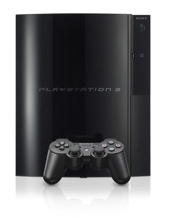 A recent interview with Sony Computer Entertainment president Ken Kutaragi alludes to the fact that Sony will not charge users for connecting to the PS3 online service. He stated that Sony's current business model will rely on downloadable content as the bread and butter while basic service should remain free.
A recent interview with Sony Computer Entertainment president Ken Kutaragi alludes to the fact that Sony will not charge users for connecting to the PS3 online service. He stated that Sony's current business model will rely on downloadable content as the bread and butter while basic service should remain free.
"You can't charge money for network matching and other basic services. These things are just taken for granted on the PC." Mr. Kutaragi was noted for saying, while reaffirming that Sony' online presence will be a force to be reckoned with.
Unlike Microsoft with their Xbox Live yearly subscription, Sony feels that people should pay for what they want and not be forced to pay a fee, just to connect.
Sony also hinted at the ability to use it's Cell processor in a multi-tiered environment thereby using the collective processing power of all the PS3s connected to their server as the power behind their conceived cyber-world.
According to Kutaragi, Sony will have network services available from launch day and has stated that digital storage and streaming will be a product to come. He hopes this move may eventually get rid of the need for optical drives, allowing the user to store content on an off-site server farm, gaining access whenever they connect. "If you have all the data on servers, you probably no longer need disk drives... But to do this, the server is crucial. It's a difficult problem," said Kutaragi.
Read more...
Written by Dave Horvath @ 12 Jun 2006 6:14
 The company with probably the largest market share in portable mp3 players, Apple has come under fire from Swedish lawmakers for their stand on DRM. Apple has been well documented to place DRM restrictions on music downloaded via iTunes into the much loved iPod, thereby cancelling any hopes by consumers for listening to their legally purchased music on any other device.
The company with probably the largest market share in portable mp3 players, Apple has come under fire from Swedish lawmakers for their stand on DRM. Apple has been well documented to place DRM restrictions on music downloaded via iTunes into the much loved iPod, thereby cancelling any hopes by consumers for listening to their legally purchased music on any other device.
Scandanavian laws conflict with the Apple terms of service contracts, iTMS, in which Apple is clearly committing illegal activity in the countries of Denmark, Norway and Sweden by forcing it's users to abide by it's DRM standards.
Swedish Consumer Agency spokeswoman Marianne Aabyhammar said "iTunes' terms and conditions are illegal in all three countries. If iTunes fails to improve its terms and conditions in Sweden, we may take the case to Sweden's market court."
Apple still refuses to allow users to convert their music files into any other format, thus enabling the music to be played on anything other than Apple products. Currently, Scandanavian law dictates that a user can lawfully break this DRM encryption for fair use purposes.
Source:
Yahoo News
Written by Dave Horvath @ 07 Jun 2006 5:51
 As many of you probably already know, Nintendo single handedly stole the show at E3 this year with exciting and revolutionary concepts for it's new console, Wii. With talks about a sub 25,000 Yen and under $250 US price tag, the already demonstrated unique gameplay, and return of much loved Nintendo icons like Mario, Link and Samus already in the works, Nintendo says it's confident that the sales numbers will keep them almost out of the negative this next fiscal year.
As many of you probably already know, Nintendo single handedly stole the show at E3 this year with exciting and revolutionary concepts for it's new console, Wii. With talks about a sub 25,000 Yen and under $250 US price tag, the already demonstrated unique gameplay, and return of much loved Nintendo icons like Mario, Link and Samus already in the works, Nintendo says it's confident that the sales numbers will keep them almost out of the negative this next fiscal year.
Its a well documented fact that game console designers take a loss, sometimes substantial, whenever they launch a new product. Sony expects to lose somewhere in the neighborhood of 100 billion Yen ($884 million) with the launch of the PS3. Console makers depend on software sales to balance out these heavy losses and give the company a profit over the lifespan of their product. Nintendo doesn't seem to think this will be the case with Wii, however.
President Satoru Iwata told a news conference, "We can't promise we won't have even a one-yen loss, but we are not expecting an enormous loss. It is a strange notion that a game console always leads to mounting losses in the beginning. We are working to make the Wii business a healthy one from the first year."
Read more...
Written by Dave Horvath @ 06 Jun 2006 9:24
A recent inquiry made by Members of Parliament (MPs) has brought up several cases against music and video producers who regularly use Digital Rights Management (DRM) to help thwart piracy of copyrighted materials.
The public inquiry's purpose was to view DRM technologies from leading media industry groups. With DRM becoming increasingly popular with digital media such as music, movies and operators of online stores, it became apparent by the MPs that some scrutiny be taken to ensure that British law isn't being superseded by DRM practices.
The MPs released a report encouraging producers that choose to distribute their wares with DRM protection should label the media accordingly so the consumer knows, prior to purchase, exactly what they are getting into. It also ensures that upon purchase, if DRM protection is circumvented, the consumer was made well aware of what infringements they may or may not have broken.
The report went on to urge the makers of DRM systems to be aware of consequences of using aggresive protection practices on their products. This report was in direct relation to practices used by media giant Sony BMG in which they employ a virus-like DRM method which hides the copy protection on a CD to avoid the information to be copied. Corporations like this needed to be made aware that using such practices in the UK run a risk of being prosecuted for criminal acts.
Read more...
Written by Dave Horvath @ 06 Jun 2006 8:15
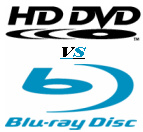 The war between Sony's Blu-Ray technology and Toshiba's HD-DVD has been compared by many as the old drawn out battle between VHS and Betamax. Each competing for industry standardization, hoping for the huge royalties that will come from manufacturers using their products.
The war between Sony's Blu-Ray technology and Toshiba's HD-DVD has been compared by many as the old drawn out battle between VHS and Betamax. Each competing for industry standardization, hoping for the huge royalties that will come from manufacturers using their products.
Recent discussions at the Computex trade show have shown different PC manufacturers showing their support all over the board. Companies like Dell, the world's largest PC manufacturer, has clearly stated they are in support of the Blu-Ray technology. While their competition, and 2nd largest PC maker, Hewlett Packard, states that their new machines will offer their customers both HD-DVD as well as Blu-Ray.
Smaller, but equally as powerful companies like Acer and Asustek Computer Inc. say they have plans for using both players, but were only showing off laptops with the HD-DVD technology in place. They were quoted as to saying that a lack of supply has left them without a working Blu-Ray model. "Right now we have no supply (of Blu-ray drives)," said Asustek's Vicki Hsiao. "We're expecting some this month."
Several disc manufacturers were showing off both HD-DVD and Blu-Ray formats, however Chairman Bob Wong of CMC Magnetics Corp., the world's largest compact disc producer said that Blu-Ray's technology is a good six months behind HD-DVD.
Read more...
Written by Dave Horvath @ 02 Jun 2006 7:45
 It appears that The Pirate Bay and others that were affected by the Swedish raid earlier this week are not the only people that feel upset about their actions.
It appears that The Pirate Bay and others that were affected by the Swedish raid earlier this week are not the only people that feel upset about their actions.
Police have said that their website has been taken offline due to increased network data being pushed to their site. There is no word yet as to the amount of damage this DoS (Denial of Service) attack has caused, or how long the Swedish Police website will be down.
Written by Dave Horvath @ 02 Jun 2006 6:24
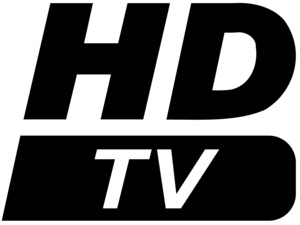 Syscan Imaging, Inc., the world leader in USB imaging scanners and developer for HDTV technology solutions with it's daughter company, Sysview Technology has unveiled their next advancement in the world of high-definition. Through the use of their proprietary carbon nano-tube designs, they have produced a true 1080p display on a screen that only measures 0.7 inches.
Syscan Imaging, Inc., the world leader in USB imaging scanners and developer for HDTV technology solutions with it's daughter company, Sysview Technology has unveiled their next advancement in the world of high-definition. Through the use of their proprietary carbon nano-tube designs, they have produced a true 1080p display on a screen that only measures 0.7 inches.
The 1080P Nano-LCOS microdisplay imager delivers 1080p x 1920 resolution on a screen about the size of your fingernail. With true 2 million pixel images that amount to a lower developing cost for the company, this type of technology could very quickly make its benefit known to the consumers. With lower production costs, companies are able to sell their HDTV sets at a lower price, thus driving up sales numbers and getting more of the world to move towards the natural HDTV evolution. With television standards set to move away from analog signals to HDTV completely in the next few years, this is a great leap forward in technology.
Chairman and CEO of Sysview Technology, Darwin Hu said, "We are extremely proud to be announcing Nanodisplay's great success in creating a truly unique and proprietary LCOS imager." Co-founder of Nanodisplay, Inc., Dr. Gehong Kim added, "We at Nanodisplay are very pleased with the advancements we have made, including a low-noise advanced architecture, low imager operating temperature and high component production yield. We're looking forward to substantive improvements in what OEM customers can expect from LCOS hi-def technology."
Read more...
Written by Dave Horvath @ 01 Jun 2006 9:55
 The file sharing community was shocked the morning of May 31, 2006 when it was announced that the MPAA (Motion Picture Association of America) in association with the IFPI (International Federation and Phonographic Industry) and Swedish law enforcement searched and confiscated a number of servers which held information towards alleged illegal activity by The Pirate Bay. What they failed to announce, however is how many "legitimate" business they've also inadvertantly taken down who were sharing server space with machines housed in Rix|Port80 (the ISP responsible for providing service for PRQ, thepiratebay.org hosting company). During the raid, every single server hosted by PRQ was seized by Swedish police, despite proper labelling which gave clear indication several of the servers had no affiliation with The Pirate Bay.
The file sharing community was shocked the morning of May 31, 2006 when it was announced that the MPAA (Motion Picture Association of America) in association with the IFPI (International Federation and Phonographic Industry) and Swedish law enforcement searched and confiscated a number of servers which held information towards alleged illegal activity by The Pirate Bay. What they failed to announce, however is how many "legitimate" business they've also inadvertantly taken down who were sharing server space with machines housed in Rix|Port80 (the ISP responsible for providing service for PRQ, thepiratebay.org hosting company). During the raid, every single server hosted by PRQ was seized by Swedish police, despite proper labelling which gave clear indication several of the servers had no affiliation with The Pirate Bay.
On these servers, some 200-300 domain names were being hosted and served. Some of these domains contained businesses who's sole method of income to cover operational costs, come from their website. Most of the servers that were confiscated were in no way related to the online copyright wars that the MPAA and RIAA have launched.
Read more...

 Recent news has shown some possible insight as to the price point of Sony's newest gaming console, the PS3. At the gaming industry trade show known as E3, Sony shocked the world when it announced it's new PS3 will go on sale for an astounding $599. Could it be that this inflated price may have been a foreshadow of their financial outlook?
Recent news has shown some possible insight as to the price point of Sony's newest gaming console, the PS3. At the gaming industry trade show known as E3, Sony shocked the world when it announced it's new PS3 will go on sale for an astounding $599. Could it be that this inflated price may have been a foreshadow of their financial outlook?

 Spanish Congress announced a new legislation that outlaws all P2P file sharing on personal computers owned and operated in the country of Spain. Congress unanimously approved this legislation as a civil offense where users caught downloading anything via P2P for personal or commercial use will be fined the amount lost by the licensee due to the download.
Spanish Congress announced a new legislation that outlaws all P2P file sharing on personal computers owned and operated in the country of Spain. Congress unanimously approved this legislation as a civil offense where users caught downloading anything via P2P for personal or commercial use will be fined the amount lost by the licensee due to the download.
 The homebrew scene has reason to rejoice as PSP Updates has officially found an exploit within the PSP 2.6 firmware that gives them access to the kernel.
The homebrew scene has reason to rejoice as PSP Updates has officially found an exploit within the PSP 2.6 firmware that gives them access to the kernel.
 The French arm of media giant Virgin Records, VirginMega France is being sued for illegally obtaining a copy of Madonna's song "Hung Up" and redistributing it for sale on their website.
The French arm of media giant Virgin Records, VirginMega France is being sued for illegally obtaining a copy of Madonna's song "Hung Up" and redistributing it for sale on their website.
 Last week, the leader in portable music devices, Apple denied to the press that it was in any violation of labor laws for their production factories based in China. Hon Hai Precision Industry's Foxconn factory, production partner for Apple's iPod, has now stepped up to the plate and admitted to keeping workers under unfair conditions. It seems the factory turned its back on Chinese law and had workers that were overworked and underpaid.
Last week, the leader in portable music devices, Apple denied to the press that it was in any violation of labor laws for their production factories based in China. Hon Hai Precision Industry's Foxconn factory, production partner for Apple's iPod, has now stepped up to the plate and admitted to keeping workers under unfair conditions. It seems the factory turned its back on Chinese law and had workers that were overworked and underpaid.
 The self proclaimed arch-nemesis of the Recording Industry Association of America (RIAA), the group collectively known as DefectiveByDesign is looking to bombard the RIAA with anti-DRM techniques to let them know that consumers will not stand for it.
The self proclaimed arch-nemesis of the Recording Industry Association of America (RIAA), the group collectively known as DefectiveByDesign is looking to bombard the RIAA with anti-DRM techniques to let them know that consumers will not stand for it.
 The original BitTorrent client that had at one point set the Internet world on it's ear has received a facelift. This time it addresses issues ISPs have with the amount of traffic dedicated to the BitTorrent P2P network.
The original BitTorrent client that had at one point set the Internet world on it's ear has received a facelift. This time it addresses issues ISPs have with the amount of traffic dedicated to the BitTorrent P2P network.
 Blazing it's own trail in the war of the next generation standards, Toshiba has announced that it's RD-A1 HD DVD recorder will go on sale in Japan on July 14th.
Blazing it's own trail in the war of the next generation standards, Toshiba has announced that it's RD-A1 HD DVD recorder will go on sale in Japan on July 14th.
 The HDMI (High Definition Multimedia Interface) connection standard has been updated with the finalized version of HDMI 1.3. Seven companies have backed this upgrade including Sony's PS3 console.
The HDMI (High Definition Multimedia Interface) connection standard has been updated with the finalized version of HDMI 1.3. Seven companies have backed this upgrade including Sony's PS3 console.
 Today's day and age is a glorious time to marvel in our own accomplishments. With the advent of the Internet, we have given birth to technological, political and ethical conflicts that we had never dreamed possible before. As a result of such technology, even a private correspondence between two professionals cannot remain hidden forever.
Today's day and age is a glorious time to marvel in our own accomplishments. With the advent of the Internet, we have given birth to technological, political and ethical conflicts that we had never dreamed possible before. As a result of such technology, even a private correspondence between two professionals cannot remain hidden forever.
 The Motion Picture Association of America (MPAA) has been working closely with developers from the Georgia Institute of Technology to produce a device aimed at blinding people who record movies illegally in theaters.
The Motion Picture Association of America (MPAA) has been working closely with developers from the Georgia Institute of Technology to produce a device aimed at blinding people who record movies illegally in theaters.
 After two solid years of lobbying by anti-piracy groups like RIAA and MPAA, someone in the US Congress has decided to listen. The two groups have asked for US resources to help stop Internet Piracy in foreign lands. After their jovial announcement of "sinking The Pirate Bay", the RIAA and MPAA used their raid as ammunition to coax US law enforcement to aide in their campaign.
After two solid years of lobbying by anti-piracy groups like RIAA and MPAA, someone in the US Congress has decided to listen. The two groups have asked for US resources to help stop Internet Piracy in foreign lands. After their jovial announcement of "sinking The Pirate Bay", the RIAA and MPAA used their raid as ammunition to coax US law enforcement to aide in their campaign.
 Next generation format pioneer Sony will be launching it's much talked about Blu-Ray format next week. Sony Pictures has stated that it will release select titles on June 20th, even though earlier reports say that Sony itself is delaying their very own Blu-Ray player. The launch, however is to coincide with a Blu-Ray player by supporter, Samsung Electronics Co. Ltd. and the launch of Sony's Blu-Ray compatible VAIO laptop.
Next generation format pioneer Sony will be launching it's much talked about Blu-Ray format next week. Sony Pictures has stated that it will release select titles on June 20th, even though earlier reports say that Sony itself is delaying their very own Blu-Ray player. The launch, however is to coincide with a Blu-Ray player by supporter, Samsung Electronics Co. Ltd. and the launch of Sony's Blu-Ray compatible VAIO laptop.
 Looking to set the DVD player market on it's ear, manufacturer Omisys just released one of the most versatile DVD players on the market today.
Looking to set the DVD player market on it's ear, manufacturer Omisys just released one of the most versatile DVD players on the market today.
 A recent interview with Sony Computer Entertainment president Ken Kutaragi alludes to the fact that Sony will not charge users for connecting to the PS3 online service. He stated that Sony's current business model will rely on downloadable content as the bread and butter while basic service should remain free.
A recent interview with Sony Computer Entertainment president Ken Kutaragi alludes to the fact that Sony will not charge users for connecting to the PS3 online service. He stated that Sony's current business model will rely on downloadable content as the bread and butter while basic service should remain free.
 As many of you probably already know, Nintendo single handedly stole the show at E3 this year with exciting and revolutionary concepts for it's new console, Wii. With talks about a sub 25,000 Yen and under $250 US price tag, the already demonstrated unique gameplay, and return of much loved Nintendo icons like Mario, Link and Samus already in the works, Nintendo says it's confident that the sales numbers will keep them almost out of the negative this next fiscal year.
As many of you probably already know, Nintendo single handedly stole the show at E3 this year with exciting and revolutionary concepts for it's new console, Wii. With talks about a sub 25,000 Yen and under $250 US price tag, the already demonstrated unique gameplay, and return of much loved Nintendo icons like Mario, Link and Samus already in the works, Nintendo says it's confident that the sales numbers will keep them almost out of the negative this next fiscal year.
 The war between Sony's Blu-Ray technology and Toshiba's HD-DVD has been compared by many as the old drawn out battle between VHS and Betamax. Each competing for industry standardization, hoping for the huge royalties that will come from manufacturers using their products.
The war between Sony's Blu-Ray technology and Toshiba's HD-DVD has been compared by many as the old drawn out battle between VHS and Betamax. Each competing for industry standardization, hoping for the huge royalties that will come from manufacturers using their products.
 It appears that The Pirate Bay and
It appears that The Pirate Bay and  Syscan Imaging, Inc., the world leader in USB imaging scanners and developer for HDTV technology solutions with it's daughter company, Sysview Technology has unveiled their next advancement in the world of high-definition. Through the use of their proprietary carbon nano-tube designs, they have produced a true 1080p display on a screen that only measures 0.7 inches.
Syscan Imaging, Inc., the world leader in USB imaging scanners and developer for HDTV technology solutions with it's daughter company, Sysview Technology has unveiled their next advancement in the world of high-definition. Through the use of their proprietary carbon nano-tube designs, they have produced a true 1080p display on a screen that only measures 0.7 inches.
 The file sharing community was shocked the morning of May 31, 2006 when it was announced that the MPAA (Motion Picture Association of America) in association with the IFPI (International Federation and Phonographic Industry) and Swedish law enforcement searched and confiscated a number of servers which held information towards alleged illegal activity by The Pirate Bay. What they failed to announce, however is how many "legitimate" business they've also inadvertantly taken down who were sharing server space with machines housed in Rix|Port80 (the ISP responsible for providing service for PRQ, thepiratebay.org hosting company). During the raid, every single server hosted by PRQ was seized by Swedish police, despite proper labelling which gave clear indication several of the servers had no affiliation with The Pirate Bay.
The file sharing community was shocked the morning of May 31, 2006 when it was announced that the MPAA (Motion Picture Association of America) in association with the IFPI (International Federation and Phonographic Industry) and Swedish law enforcement searched and confiscated a number of servers which held information towards alleged illegal activity by The Pirate Bay. What they failed to announce, however is how many "legitimate" business they've also inadvertantly taken down who were sharing server space with machines housed in Rix|Port80 (the ISP responsible for providing service for PRQ, thepiratebay.org hosting company). During the raid, every single server hosted by PRQ was seized by Swedish police, despite proper labelling which gave clear indication several of the servers had no affiliation with The Pirate Bay.







